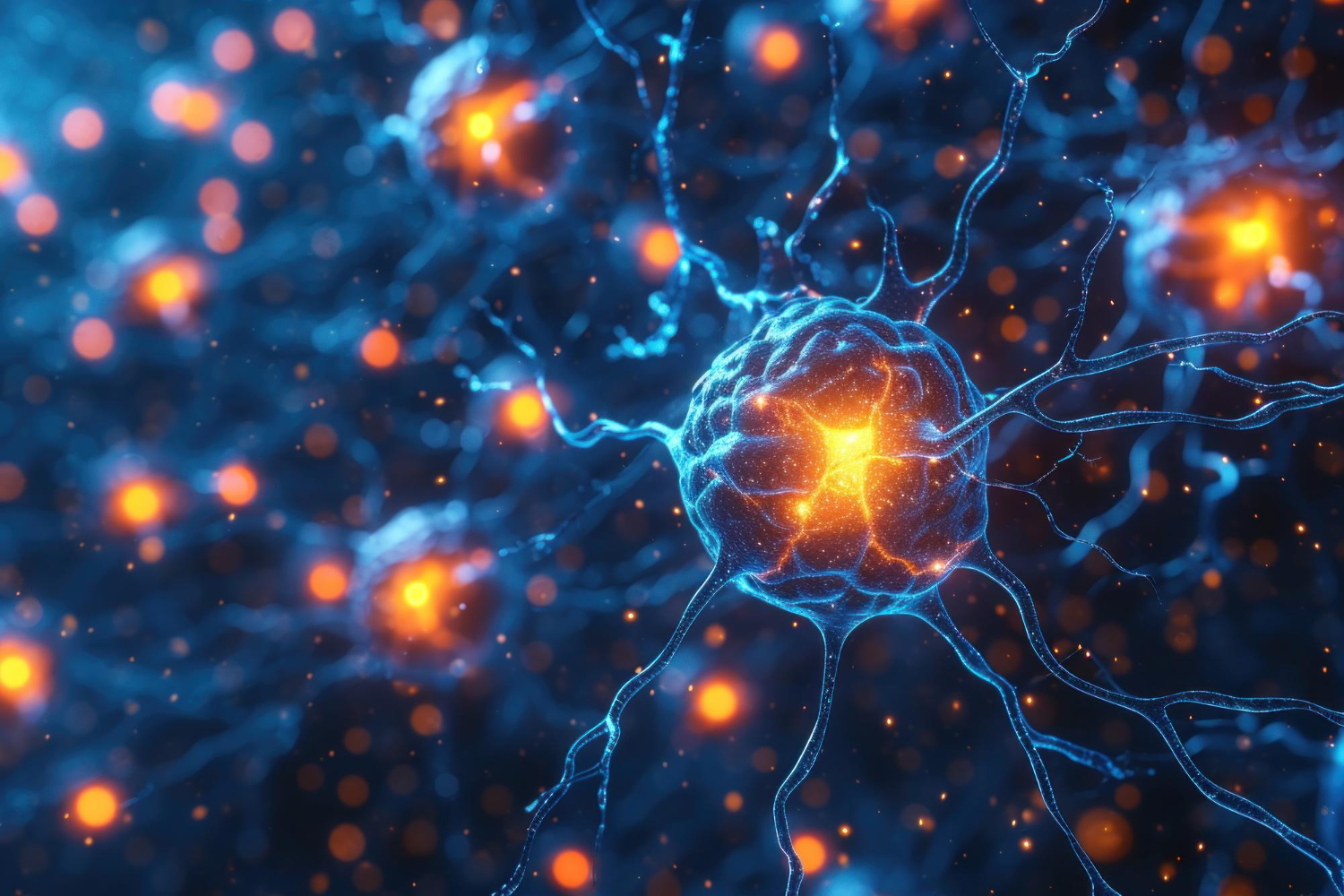
In today’s rapidly evolving digital landscape, companies are constantly seeking innovative ways to engage customers across multiple channels. Enter Artificial Intelligence (AI), the game-changing technology that is reshaping the future of digital marketing. By leveraging AI, marketers can now supercharge their omni-channel strategies and take customer experiences to new heights.
In this article, we delve into the exciting possibilities unlocked by AI for enhanced omni-channel digital marketing. From personalized messaging and predictive analytics to automated campaign optimization, the potential applications of AI are vast and transformative.
With AI, brands can gain deeper insights into consumer behavior, preferences, and purchase intent, enabling them to deliver tailored content and offers across various touchpoints. Furthermore, AI-powered chatbots and virtual assistants can provide instantaneous support, offering a seamless experience for customers.
Join us as we explore how leading brands are harnessing the power of AI to strengthen their omni-channel marketing efforts, increase conversions, and build lasting customer loyalty. The future of digital marketing is now, and AI is the driving force behind this revolution. Stay ahead of the curve by embracing AI-powered strategies for a truly impactful omni-channel marketing approach.
Benefits of incorporating AI in omni-channel marketing strategies
Artificial Intelligence (AI) has revolutionized the way businesses approach marketing. By incorporating AI into their omni-channel strategies, brands can unlock a multitude of benefits that can significantly impact their bottom line.
AI-powered customer segmentation and targeting
One of the key advantages of AI in omni-channel marketing is its ability to enhance customer segmentation and targeting. Traditional methods of segmentation often rely on demographic data, which can be limiting and fail to capture the intricacies of individual customer behavior. AI, on the other hand, leverages machine learning algorithms to analyze vast amounts of data, enabling marketers to identify and target specific customer segments with precision. This level of granularity allows for personalized messaging and offers, resulting in higher conversion rates and increased customer satisfaction.
Personalization and customer experience with AI
In addition to improved targeting, AI also empowers brands to deliver personalized customer experiences across various touchpoints. By leveraging AI-powered recommendation engines, brands can curate content and product suggestions based on individual customer preferences, purchase history, and browsing behavior. This level of personalization not only enhances the customer experience but also increases the likelihood of repeat purchases and brand loyalty.
AI-driven predictive analytics for improved decision-making
Furthermore, AI-driven predictive analytics plays a crucial role in optimizing marketing strategies and decision-making. By analyzing historical data and identifying patterns, AI algorithms can predict future customer behavior, allowing marketers to make data-driven decisions. This enables brands to allocate resources more effectively, optimize campaign performance, and maximize return on investment.
Chatbots and virtual assistants in customer service
AI-powered chatbots and virtual assistants have also become invaluable tools in customer service. With the ability to provide instant support and answer customer queries 24/7, chatbots and virtual assistants offer a seamless and efficient customer experience. These AI-powered assistants can handle a wide range of inquiries, from product recommendations to order tracking, freeing up human agents to focus on more complex tasks. By integrating AI-powered chatbots into their customer service strategy, brands can enhance customer satisfaction, reduce response times, and improve overall efficiency.
AI-powered content creation and optimization
AI’s impact on content creation and optimization cannot be overstated. With AI-powered tools, marketers can automate the process of generating and optimizing content, saving valuable time and resources. AI algorithms can analyze consumer data, identify trending topics, and generate content that resonates with target audiences. Additionally, AI can optimize content for search engines, ensuring that brands rank higher in search results and drive organic traffic to their websites.
Ethical considerations and challenges of using AI in marketing
While the benefits of incorporating AI in omni-channel marketing strategies are vast, it’s important to acknowledge the ethical considerations and challenges that arise with the use of AI. Data privacy and security, algorithm bias, and the potential for job displacement are just a few of the ethical concerns that need to be addressed. Brands must prioritize transparency, accountability, and responsible AI practices to ensure that the benefits of AI are realized without compromising consumer trust and privacy.
Implementing AI in your omni-channel marketing strategy
Implementing AI in an omni-channel marketing strategy requires careful planning and execution. Brands must first assess their specific needs and objectives, identify the right AI technologies and tools, and ensure seamless integration with existing systems. Collaboration between marketing teams and data scientists is essential to leverage AI effectively and extract maximum value from the technology. Continuous monitoring and analysis of AI-driven campaigns are also crucial to identify areas for improvement and refine strategies over time.
AI-powered customer segmentation and targeting
AI has revolutionized the way marketers segment and target their audience. Traditional methods of customer segmentation often rely on demographic data such as age, gender, and location. However, AI enables marketers to tap into a wealth of data and identify more nuanced segments based on behavioral patterns, interests, and preferences. This allows for highly targeted and personalized messaging that resonates with customers on a deeper level. AI-powered algorithms can analyze vast amounts of data in real-time, continuously learning and adapting to deliver more accurate and relevant content to each individual.
Furthermore, AI can help identify potential customers who are most likely to convert. By analyzing historical data and patterns, AI algorithms can predict customer behavior and intent, enabling marketers to focus their efforts on the most valuable prospects. This not only increases conversion rates but also maximizes return on investment (ROI) by optimizing marketing spend. With AI, marketers can make data-driven decisions and allocate resources more efficiently, resulting in higher engagement and revenue.
AI also enables marketers to automate the process of targeting and retargeting customers across multiple channels. By integrating AI with their omni-channel marketing platforms, brands can deliver consistent and personalized messaging to customers wherever they are in their customer journey. This seamless and cohesive experience enhances brand perception and drives customer loyalty.
Personalization and customer experience with AI
Personalization is key to creating engaging and memorable customer experiences. AI empowers marketers to deliver hyper-personalized content and offers that cater to each individual’s preferences and needs. By analyzing customer data, AI algorithms can generate personalized recommendations, product suggestions, and targeted promotions in real-time. This level of personalization not only increases customer satisfaction but also drives conversion rates and repeat purchases.
AI-powered chatbots and virtual assistants play a crucial role in enhancing the customer experience. These intelligent bots can provide instant and accurate responses to customer queries, offer product recommendations, and assist with purchase decisions. With advancements in natural language processing and machine learning, chatbots have become increasingly sophisticated, mimicking human-like conversations and providing a seamless customer service experience. By leveraging AI-powered chatbots, brands can handle a large volume of customer inquiries simultaneously, improving response times and overall customer satisfaction.
AI-driven predictive analytics for improved decision-making
Data is the lifeblood of digital marketing, and AI has revolutionized how marketers harness its power. AI-driven predictive analytics enables marketers to make informed decisions based on actionable insights extracted from vast amounts of data. By analyzing historical data, AI algorithms can identify patterns, trends, and correlations that humans may not be able to detect. This empowers marketers to anticipate customer needs, preferences, and behaviors, enabling them to create more effective marketing campaigns.
Predictive analytics also enables marketers to optimize their marketing spend by identifying the most effective channels, content, and offers. By leveraging AI, marketers can continuously test and refine their campaigns, ensuring that resources are allocated to the most impactful activities. This data-driven approach not only improves marketing efficiency but also drives revenue growth.
Chatbots and virtual assistants in customer service
Customer service is a critical touchpoint in the customer journey, and AI-powered chatbots and virtual assistants are transforming this aspect of digital marketing. Chatbots can handle routine customer inquiries, freeing up human agents to focus on more complex and high-value tasks. With advancements in natural language processing, chatbots can understand and respond to customer queries in real-time, providing instant support and resolving issues efficiently. This not only improves customer satisfaction but also reduces response times and operational costs for brands.
Virtual assistants take customer service to the next level by offering personalized and proactive support. By analyzing customer data, virtual assistants can anticipate customer needs and offer relevant information or assistance before customers even ask for it. This proactive approach not only enhances the customer experience but also builds trust and loyalty. Virtual assistants can also provide personalized recommendations and offers, increasing cross-selling and upselling opportunities for brands.
AI-powered content creation and optimization
Content is the backbone of digital marketing, and AI is revolutionizing how content is created, optimized, and distributed. AI-powered tools can generate high-quality and engaging content at scale, saving marketers significant time and resources. From automated article writing to dynamic email templates, AI-powered content creation tools enable marketers to create tailored content for each individual, optimizing engagement and conversions.
AI also plays a crucial role in content optimization. By analyzing customer data and behavior, AI algorithms can identify the most effective content formats, topics, and distribution channels. This data-driven approach ensures that content resonates with the target audience and maximizes its impact. AI can also optimize content for search engines, improving organic rankings and driving more traffic to websites and landing pages. With AI-powered content creation and optimization, marketers can create more compelling and impactful content that drives results.
Ethical considerations and challenges of using AI in marketing
While the potential of AI in marketing is immense, there are ethical considerations and challenges that marketers must navigate. AI relies on vast amounts of data, and ensuring data privacy and security is paramount. Marketers must be transparent and responsible in how they collect, store, and use customer data. Additionally, AI algorithms can be biased, reflecting the prejudices and biases inherent in the data they are trained on. Marketers must be vigilant in ensuring that AI algorithms do not perpetuate discrimination or reinforce stereotypes.
Another challenge is the potential for AI to replace human jobs. While AI-powered automation can streamline processes and improve efficiency, it is important to strike a balance between automation and maintaining human touchpoints. Human creativity, empathy, and intuition are still invaluable in marketing, and AI should augment human capabilities rather than replace them. Marketers should also be mindful of the potential negative impact of AI on employment and work towards reskilling and upskilling the workforce to thrive in an AI-driven future.
Implementing AI in your omni-channel marketing strategy
To harness the power of AI in omni-channel marketing, brands must adopt a strategic and holistic approach. It is crucial to identify the specific use cases where AI can make the greatest impact and align them with overarching business goals. This involves conducting a thorough assessment of existing data sources, technology infrastructure, and internal capabilities. Brands must invest in the right AI-powered tools and platforms that align with their unique needs and objectives.
Furthermore, organizations must foster a culture of data-driven decision-making and experimentation. AI requires continuous learning and optimization, and brands must be agile and adaptable in adopting AI-powered strategies. This involves investing in the right talent, training employees, and creating an environment that encourages innovation and collaboration.
Conclusion: Embracing the future of digital marketing with AI
In conclusion, the future of digital marketing is now, and AI is the driving force behind this revolution. By leveraging AI in their omni-channel marketing strategies, brands can gain deeper insights into consumer behavior, deliver personalized experiences, optimize campaigns, and build lasting customer loyalty. However, it’s important to approach AI implementation with ethical considerations and to ensure responsible and transparent practices. Embrace the power of AI and stay ahead of the curve in the ever-evolving digital landscape. The future is yours to shape with AI-powered omni-channel marketing strategies.




